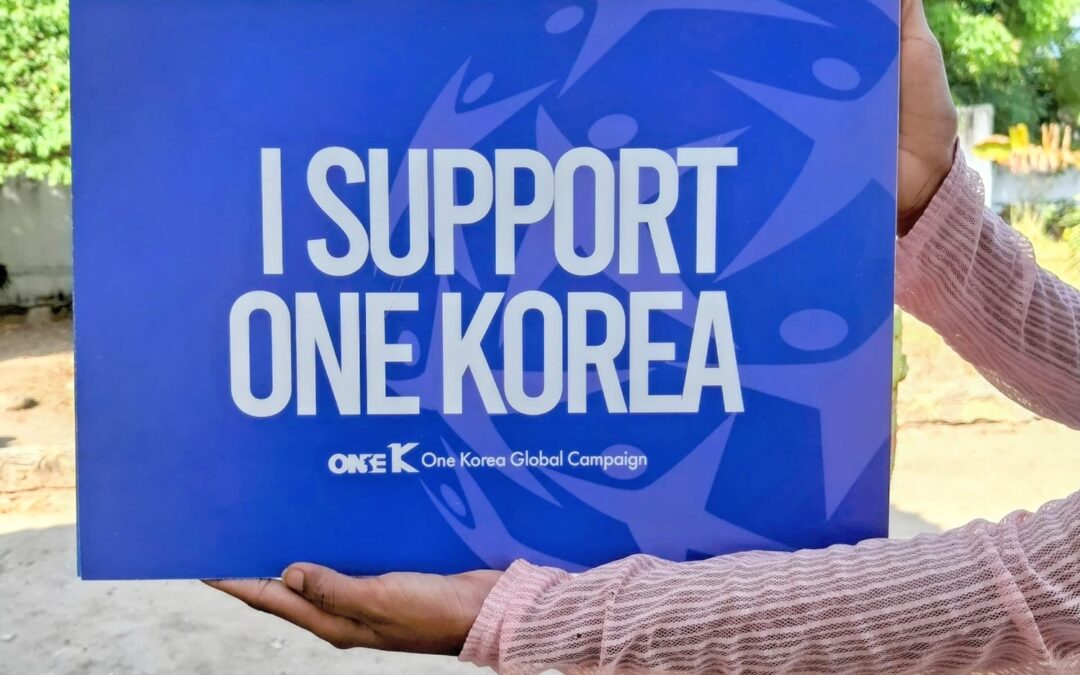“The impact of the principled reunification of the Korean people, artificially divided for way too long, will be enormously significant. Not only will it benefit the peninsula and the East Asia region through greater peace, stability, and prosperity. It will be a light to the world, showing how even the most extreme division and conflict can be overcome.” -Dr. Hyun Jin P. Moon (2021 Global Peace Convention, Keynote Address)
The dream of a unified Korea is a moral and human calling shared by people across the world. From the halls of Japan’s National Diet to youth forums in Tanzania and Indonesia, a growing international chorus is calling for peace and reunification on the Korean Peninsula. This global wave is not driven by governments but by students, activists, and citizens who believe that the division of Korea is not just a regional issue, but a human one.
Korea’s division after World War II left deep scars that still affect millions of families. But the movement to reunite the peninsula is now powered by a vision that transcends geopolitics—the belief that all people deserve peace, freedom, and dignity.
At the heart of global efforts for reunification lies the Korean Dream—a vision that draws on Korea’s ancient spiritual heritage to inspire a peaceful, values-based unification. This dream envisions a Korea rooted in its founding ideal of “Hongik Ingan”—to live for the benefit of all humanity—and positions reunification not as a political outcome, but as a moral awakening with global relevance. Supporting Korean reunification, then, becomes a step toward a more principled, peaceful world.
Around the globe, young people and civil society are making this dream their own, breathing new life into the call for peaceful reunification.
In Tanzania, the Korean Dream inspired a surge of grassroots engagement. Students, faith leaders, and youth organizations united under the One Korea Global Campaign, collecting thousands of signatures and sharing messages of solidarity. Through virtual conversations with Korean students and signature drives, Tanzanians reaffirmed a simple truth: peace in Korea is peace for the world.
As one Tanzanian student leader said, “We believe the reunification of Korea will be a symbol of hope for divided peoples everywhere.” Their efforts exemplify how shared values—not shared borders—are what truly connect us.
Meanwhile, in Tokyo, over 200 youth leaders from 25 countries gathered for the Japan Young Leaders Assembly, advocating for peace and reunification. The forum featured North Korean defectors, international scholars, and activists who encouraged youth to become “peace creators” in their own communities.
What stood out was the power of story—young leaders using digital media, art, and public speaking to share the message of reunification. Their participation showed that global youth are not bystanders but stakeholders in shaping a more peaceful East Asia.
One speaker noted, “This isn’t just about Korea—it’s about how the world handles division, conflict, and reconciliation.”
In Indonesia, 600 youth came together to reflect on Korea’s March 1st Movement—an early 20th-century struggle for independence that resonates with Indonesia’s own anti-colonial history. The virtual gathering wove together narratives of national identity, peace, and interfaith cooperation.
Indonesian speakers highlighted how principles like Pancasila—the country’s philosophical foundation—align with the Korean Dream’s emphasis on unity and human dignity. This cross-cultural connection deepens global empathy and commitment to Korea’s peaceful future.
Reunification is not just a Korean dream—it’s a global hope. From Africa to Asia and beyond, young people are answering the call for peace with clarity and conviction. Their message is clear: unity is possible when we act with courage, compassion, and shared purpose.
Original posts appear on Global Peace Foundation. Global Peace Foundation is an international non-sectarian, non-partisan, nonprofit organization, which promotes an innovative, values-based approach to peacebuilding, guided by the vision of One Family under God. GPF engages and organizes a global network of public and private-sector partners who develop community, national, and regional peacebuilding models as the foundation for ethical and cohesive societies. Dr. Hyun Jin Preston Moon is the founder and chairman of the Global Peace Foundation.

